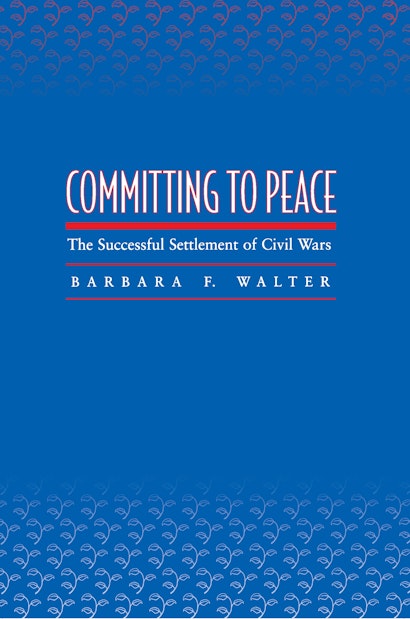Committing to Peace: The Successful Settlement of Civil Wars


Paperback
- Price:
- $47.00/£38.00
- ISBN:
- Published:
- Jan 15, 2002
- Copyright:
- 2002
- Pages:
- 216
- Size:
- 6 x 9.25 in.
- Main_subject:
- Political Science
ebook
Why do some civil wars end in successfully implemented peace settlements while others are fought to the finish? Numerous competing theories address this question. Yet not until now has a study combined the historical sweep, empirical richness, and conceptual rigor necessary to put them thoroughly to the test and draw lessons invaluable to students, scholars, and policymakers. Using data on every civil war fought between 1940 and 1992, Barbara Walter details the conditions that lead combatants to partake in what she defines as a three-step process—the decision on whether to initiate negotiations, to compromise, and, finally, to implement any resulting terms. Her key finding: rarely are such conflicts resolved without active third-party intervention.
Walter argues that for negotiations to succeed it is not enough for the opposing sides to resolve the underlying issues behind a civil war. Instead the combatants must clear the much higher hurdle of designing credible guarantees on the terms of agreement—something that is difficult without outside assistance. Examining conflicts from Greece to Laos, China to Columbia, Bosnia to Rwanda, Walter confirms just how crucial the prospect of third-party security guarantees and effective power-sharing pacts can be—and that adversaries do, in fact, consider such factors in deciding whether to negotiate or fight. While taking many other variables into account and acknowledging that third parties must also weigh the costs and benefits of involvement in civil war resolution, this study reveals not only how peace is possible, but probable.